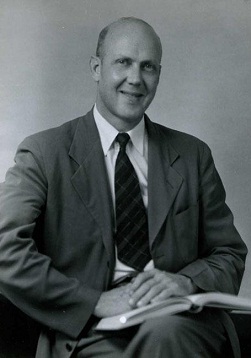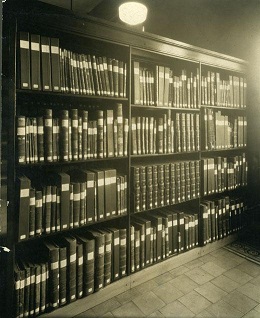
The North Carolina Office of Archives and History is the third-oldest state historical agency in the nation, and one of the largest such agencies. It is a direct descendant of the North Carolina Historical Commission, established in 1903 on the heels of similar actions by Alabama in 1901 and Mississippi in 1902. That these agencies were established in the old Confederacy during the rise of the New South was no accident. Many southerners believed that in order to direct their future they had to preserve their past. In 1943 the North Carolina agency was designated the Department of Archives and History. With the reorganization of state government between 1971 and 1973, the agency became the North Carolina Division of Archives and History within the Department of Cultural Resources. In 2001 it was renamed the Office of Archives and History.
From its beginnings-when a young Raleigh attorney named William J. Peele began pressing for the creation of a state historical agency in 1900 and met with success three years later-the organization has enjoyed notable leadership. Among its directors have been R. D. W. Connor (who went on to become the first archivist of the United States), Albert Ray Newsome (first president of the Society of American Archivists), C. Christopher Crittenden (first president of the American Association for State and Local History), and H. G. Jones (twice recipient of the national Waldo Gifford Leland Award for excellence in archival history, theory, or practice). Through the years, the Office of Archives and History has established award-winning programs in archives and records management, museums, highway markers, historic sites, historic preservation, archaeology (including underwater archaeology), and publications. The degree of professionalism has remained high, largely because of the supervision of the North Carolina Historical Commission, an 11-member body made up of five historians and six laypersons appointed by the governor for six-year staggered terms. In 2003 a number of events were held in observance of the organization's centennial year.

The North Carolina State Archives is the state's depository for historically valuable documents and information. The agency collects, preserves, and makes available for public use historical and evidential materials relating to North Carolina. The archives' holdings consist of official records of state and local governmental units and copies of federal and foreign government materials. County records comprise a large part of the collection, including county court records, wills, estate records, marriage bonds, and tax records. The archives also houses some military records such as pay vouchers, pensions, and accounts from the Revolution to World War II.
Patrons can also access microfilm copies of the Federal Census from 1790 to 1920 (excluding the burned 1890 census) as well as bound volumes of county lists from the censuses. In addition to these official records, the archives possesses private collections, maps, pamphlets, sound recordings, photographs, motion picture film, and a small reference library. In all, the North Carolina State Archives houses more than 50,000 linear feet of permanently valuable materials, containing millions of individual items. New records are acquired as they become available. Counties and government agencies deposit records periodically, while the archives obtains other collections through donations and purchases financed by the Friends of the Archives.
The North Carolina State Archives received the first Distinguished Service Award of the Society of American Archivists in 1964, and The Way We Lived in North Carolina, a five-volume series of richly illustrated books examining the social history of the state with a special emphasis on its historic sites, won the James Harvey Robinson Prize of the American Historical Association for its outstanding contribution to the teaching and learning of history in 1984.
People in North Carolina with the Title of State Archivist
1950-1954 : W. Frank Burton
1954-1968 : H. G. Jones
1968?-1973 : C. F. W. Coker
1973-1980 : Thornton W. Mitchell
1980-1999 : David J. Olson
1999-2004 : Catherine J. Morris
2004-2012 : Jesse R. Lankford Jr.
2012-2025 : Sarah Koonts